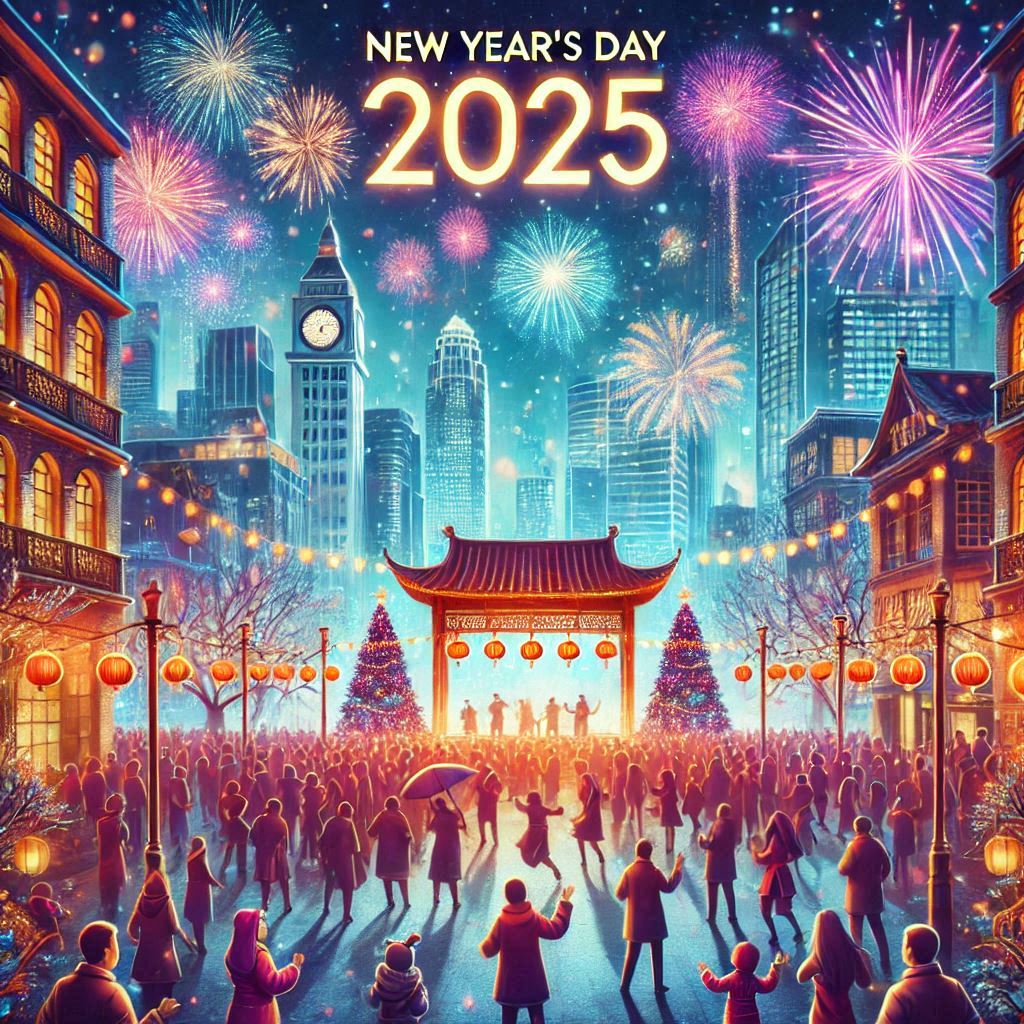Posted On 01 Jan 2025
New Year’s Day, celebrated on January 1st in many cultures, marks the start of a new year and is often seen as a time for fresh beginnings, resolutions, and celebrations. While traditions vary around the world, the common themes of reflection, renewal, and hope are universal.
In the United States, New Year’s Eve is typically celebrated with parties, fireworks, and the iconic ball drop in New York City’s Times Square. Millions of people gather to watch the ball descend as the final seconds of the old year tick away. This tradition dates back to 1907 and has become a symbol of the festive spirit and anticipation that accompanies the arrival of the new year.
Across the globe, different cultures have their unique ways of welcoming the new year. In Spain, it is customary to eat twelve grapes at the stroke of midnight, one for each chime of the clock, to bring good luck for the twelve months ahead. In Japan, New Year’s Day, or Shogatsu, is one of the most important holidays of the year. Families gather to enjoy traditional foods such as ozoni (a soup with mochi) and osechi-ryori (a variety of special dishes), and many visit shrines to pray for health and prosperity in the coming year.
In Scotland, Hogmanay is celebrated with great enthusiasm, featuring traditions such as “first-footing,” where the first person to enter a home after midnight is believed to bring good luck. This person often brings symbolic gifts, like coal, shortbread, or whisky, to ensure warmth, food, and good cheer in the year ahead.
For many, New Year’s Day is also a time for setting resolutions—personal goals for self-improvement. Common resolutions include commitments to healthier lifestyles, career advancements, or learning new skills. While sticking to resolutions can be challenging, the practice itself reflects a universal desire for growth and betterment.
Religious and spiritual practices also play a significant role in New Year’s celebrations. In many Christian communities, Watch Night services are held on New Year’s Eve, offering a time for reflection, prayer, and recommitment. Similarly, in Hindu culture, various regional new year festivals such as Diwali in India or Songkran in Thailand are celebrated with rituals that cleanse the past year’s burdens and usher in new blessings.
Ultimately, New Year’s Day is more than just a date on the calendar; it embodies humanity’s timeless desire for renewal, optimism, and a fresh start. As we bid farewell to the old year and welcome the new, we carry forward traditions and hopes that connect us across cultures and generations, reminding us of our shared journey and aspirations.








